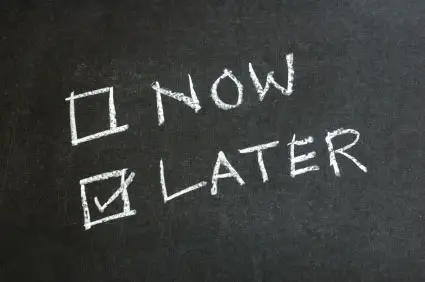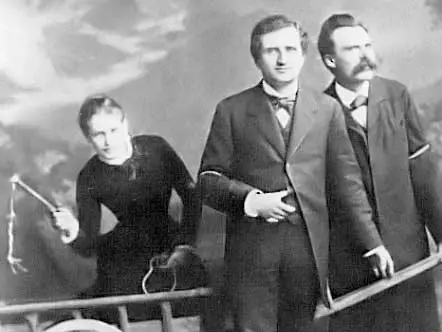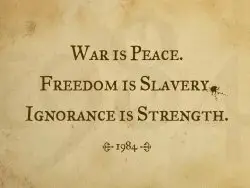Reflections on procrastination, and its paradox


Reflections on procrastination, and its paradox
In a near completion of my PhD, it is now a question whether I’d continue with writing on this blog, or take on a more serious approach to life and get a ‘job’. In the meantime, as there are still a couple of months left, I should at least try to populate the blog with more posts. In this particular one, I’ll start with a reflection on procrastination. What is at the core of putting things for a later stage, and a later one, and a later one?
To be sure, I’m not an expert in the field, though I often feel that the so called experts don’t really know much about the subject either. The experts fall into two categories, actual scientists who do experiments and come up with results; and ‘psychologists’ who base it all on popular beliefs and come up with solutions that work for nobody.
Example of group 1, and surprisingly a very rare one:
‘Understanding the Cognitive and Genetic Underpinnings of Procrastination: Evidence for Shared Genetic Influences With Goal Management and Executive Function Abilities.’ By Daniel E. Gustavson, Akira Miyake, John K. Hewitt, and Naomi P. Friedman.
The publication is quite interesting (though paywall), so hopefully your library has subscription. Studying twins, they wanted to identify whether procrastination is genetic or environmental – and not surprisingly they found that it is partly genetic (28%), but also that it is partly environmental (28%). It couldn’t be much clearer – we need more research.
And here is an example of group 2:
‘Stop procrastinating’, with James Manktelow and Amy Carlson. These guys even have a youtube video:
https://youtube.com/watch?v=Yx-NMkFYiog
Unlike the previous, this one is not a scientific study as such, but more of a ‘self-help guru type thing’. They claim that it all comes down to time management (and self-management). Though I don’t want to sound arrogant, what they are discussing is not procrastination, but avoiding work – and although the two overlap, they are not quite the same. I use these two ‘gurus’ as an example, but there are many like them, see this link to Psychology Today, where you have numerous self-help guides, which ultimately mean nothing.
Running into a wall with what procrastination is, and how it differs from simply avoiding work, I decided to write about the topic myself; and to do so from my experience. So what follows is mostly my experience with it, and by that only an attempt at self-understanding, which I think many procrastinators like myself feel most of the time.
Let’s start with looking where the experts go wrong.
1. Not surprisingly, the first group of experts, being overly scientific as they are, have the following recommendation: “Training subjects on how to set good goals may improve their ability to manage these goals and avoid procrastination. Moreover, helping subjects retrieve their important long-term goals and use those goals to avoid getting side-tracked by short-term temptations might also be effective at reducing procrastination.” As I will show below, this is not really something that procrastinators don’t already know; and additionally, this is highly ineffective. It is not like there are no goals set out in front of us; something else is going on that leads to procrastination.
2. With the second group it all comes down to time management. Typical ‘self-help guru’ would recommend steps, and this is exactly what they do: Step 1 – Identify Procrastination (or perhaps admit to yourself that you are indeed procrastinating); Step 2 – Figure out WHY you are procrastinating (if only it were that easy); Step 3 – Adopt Anti-Procrastination Strategy (no shit, Sherlock!).
Instead, I propose a different view. Here is what I know about procrastination from my own observations.
1. Procrastination is something that affects all of us. Yes, all of us, every singly human being. Certainly, it affects some of us more than others (just as eyesight degradation affects all of us differently and to different extents). And as it is only with those who are unable to go about their day with poor eyesight that glasses become necessary; so with procrastination, it is only with most affected that something needs to be done. This is indeed to say that in some instances procrastination affects us to the extent that we cannot go about our day as we would have otherwise. And I do not mean this in some mundane sense that we do other things than we are supposed to do, but rather that procrastination affects our well-being just as much as poor eyesight does. I am not talking about climbing up the career ladder because non-procrastinator is able to work more, I am talking about simple daily tasks that we are unable to perform. To keep the analogy with poor eyesight, just as a person with poor eyesight has difficulties on the road (assuming he can drive, but can’t read the signs), so does the procrastinator have immense difficulties in life as he misses the metaphorical signs on the road.
2. This last point is quite important and is overlooked by ‘self-help gurus’ – you would often hear something along the lines of: ‘Just make a start, and you’ll see that you can do it’. Or, ‘Just shut off your internet, so you don’t watch YouTube all the time’. Or with Manktelow and Carlson above, this is one of their recommendations: “Shame yourself into getting going!”
What these comments miss in particular, is that it is not the distraction that leads to procrastination, but the very reverse is the case: procrastination leads to doing anything else but doing whatever it is that you are meant to do (and I mean ‘meant to do’ lightly, because more often than not, whatever it is that you are meant to do, is not meant by anyone else than yourself).
What we should remind ourselves of here, in other words, is that procrastination is not a form of laziness or a lack of focus, or some form of ADHD. It is a particular condition which makes us dread the task at hand. It is not a disease of some sort (though perhaps being partially genetic, we could qualify it as such), and I am pretty sure some drugs can help with procrastination by making you focus (as they would also for those who are not known for procrastinating).
Procrastination Stages
In my experience with procrastination, I have come up with three stages that I identify. These stages are meant also to depict some common misconceptions about procrastination. And no, I don’t think of them as obstacles to be overcome, or that you can adopt a tactic to overcome them through training some time-management skills.
1. Procrastinators dread procrastinating. It is not as though within our (very long) moments of ‘distraction’ we are fully enjoying ourselves, being swept away by the mighty wings of YouTube or whatever. Quite the contrary is the case, with each click a certain feeling of ‘self-loathing’ comes along. We google why we procrastinate, what we should do now, how to overcome it, and so on. We certainly enjoy the video we are watching, or the article we are reading, or cute cats (whatever is your fancy really); but at the same time, we know we should not be doing that, which in effect lessens our pleasure. It’s a kind of limbo state, we are neither in heaven nor hell. There is, as it were, a feeling of guilt (side note: I should make a post on guilt; side note 2: and a post on side notes). By guilt, I don’t mean some Christian form of guilt, into which I think Freudian guilt also falls in. By guilt here I only mean a measure of overcoming the state of your current action, never (or rarely) as a measure to avoid the action as such.
I call this stage limbo for a reason. Its affect on us is not that severe, though it certainly can be. We are literally suspended between two worlds: one of enjoyment without guilt (and I’m aware that psychoanalytically this is not entirely possible; but note that in psychoanalysis guilt always succeeds pleasure – with procrastination guilt accompanies pleasure), and one of immersion into work. What is missing, in other words, is the disregard within the activity itself for things that have otherwise nothing to do with that activity.
2. You would know also, that despite procrastinating, most of us actually get a lot done. Much more than some others in fact, which in turn exacerbates the feeling of guilt mentioned before. The reason for this is usually twofold:
a) Some of us panic. We panic to such an extent that we put everything into effort of finishing the task. Once we realise that time has almost run out, the fear of disappointment (to others mostly, cause we have already disappointed ourselves at this moment) kicks in and we start doing only this one task.
b) In the moment of procrastination, the task is never forgotten. Instead, it becomes the process and feeds back onto the task (hence also the guilt, we would feel no guilt if we would be able to forget the task, and instead enjoy the ‘cute cats’ much more). We remember how a particular video explained something, and use the same method; or a particular article used a phrase, and copy that (though not necessarily verbatim). We are parasites in that sense, or in psychoanalytic terms, we are perverts.
The problem is that in this productivity, we are also deeply disappointed with the results. This is, no wonder, because we could have spent more time on the task, but instead rushed it. And even when/if the result is satisfactory to others, the disappointment still remains.
Some procrastinators have a much tougher situation, as they do not panic. This may seem better, but it is quite the opposite. Where some of us (most of us I think) are still able to function after the task is completed, for those who do not panic, the task is never finished. And their feeling of dread is dragged on to the next day, and the next, and so on.
I call this stage the abyss, for both ‘panickers’ and not. In both cases, the stage is very deep, and the more you find yourself in it, the further in the procrastination takes you. The dissatisfaction with the work amplifiers itself into further procrastination, as does the lack of panic and lack of any work. And because I am compelled to cite Nietzsche (though somewhat inappropriately at this particular occasion): “He who fights with monsters should look to it that he himself does not become a monster. And when you gaze long into an abyss the abyss also gazes into you.” (Beyond Good and Evil, 146; for German follow this link).
3. We love planning. And this bothers me most with the so called experts, as they seem to miss this particular aspect of procrastinators. We love planning so much that we are very good at it. Perhaps the best. And no, a good plan is not going to help us – at all! The reason is that we can create a much better plan than whatever good plan you have in mind. The actual problem is that instead of executing the plan, we start dreaming about it being done. The reason for our plan being better is in fact because it is visualised as completed. We see the end result.
But this is also the problem. Seeing it, we also dream of it – we look up the final result, fantasise about it. For some of us, the plan is never finished. It needs better visualisation, and we are procrastinating the doing of the tasks themselves and keep working on the plan instead. In a sense we delude ourselves that the plan is not good enough. We always know that regardless of the plan, we will change it later as we get along one task after the other, but exactly for this reason we keep writing on the plan.
I call this stage the rabbit hole – because the deeper we dig into the plan, the further we get into nothingness. And we delude ourselves with the thought that at least the plan is good, and end up dreaming of the result as if we were Alice in Wonderland (side note 3: I should really write about Alice). It’s different from the abyss because there is a delusion, and it is certainly less distressful than the abyss is.
The procrastinator’s metaphorical silver lining
We do learn from our mistakes, but this does not mean that we can also suddenly stop procrastinating. It is by now accepted that the older we get the less we procrastinate. What the reason for that is, I am not sure (though I have a thought or two). It’s a long process, but it is never really over. To some extent, it’s like smoking. Once you quit, you’re still drawn to it. You’re never a non-smoker, only an ex-smoker. The past experience does help us to organise things better, and longer projects do lead to more satisfactory results (as deadlines are split into smaller ones, and we can go over some old things again). But it nevertheless remains a struggle.
There is, to keep in line with the theme of the blog, a certain paradox at hand with some, though not all, procrastinators. Once we finally do start working, from panic or not, we give ourselves into the task completely. On occasion, the procrastination leads us down a path that everything becomes clear (e.g. when you write), or the research becomes more fascinating. We no longer visualise the results, or dream about them, we work towards them. The paradox is that through procrastination you become more productive – perhaps not as organised, perhaps not with as good results, but there is more productivity as leisure becomes part of work. If you have understood the second stage described above, you would know what I mean – and I have a feeling that only ‘true’ procrastinators may understand this. Then again, I may be deluding myself; and perhaps even giving procrastinators like myself an excuse.
Interestingly enough, this whole post was the result of a very long procrastination, I spent hours in the rabbit hole, and ended up writing about it (which didn’t take me as long as the time I spent there). As you may notice, I started with writing about being serious in life, which I deliberately didn’t edit out. Certainly, this may not apply to all tasks we have, but with creative output (writing, painting, reading, etc.) we may find ourselves doing a different task and yet making that task our own, and though a result of procrastination, there is still some satisfaction with it.
Special thanks to Bob Gerkin for drawing these for me. Visit his site and support him on Patreon!
Sign up for Paradox of the Day mailing list and please visit our Patreon support page.











